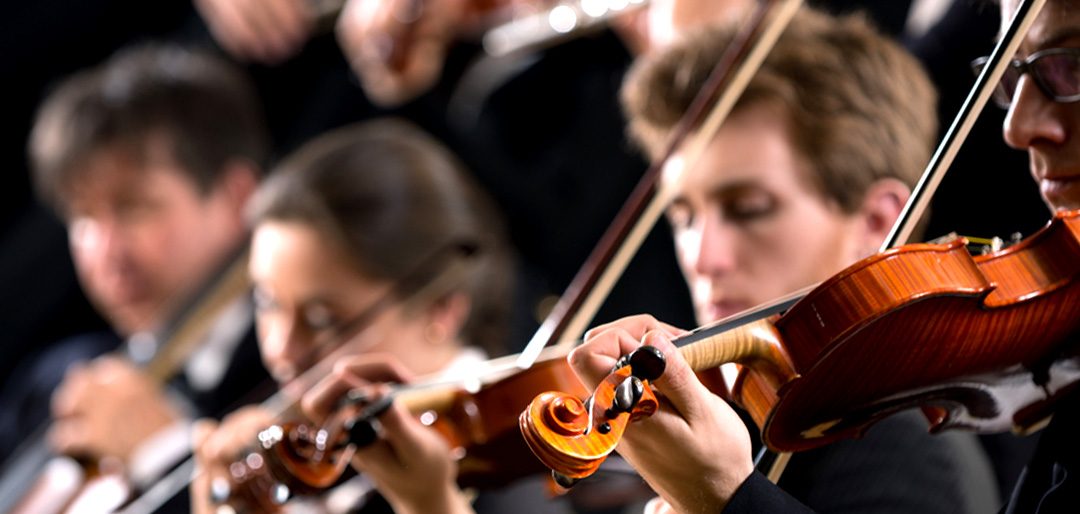Then, only a few weeks before the first London performance, the Hackney Empire announced that it was cancelling the event, citing the theatre’s ‘commitment and position as a champion of diversity’ – as despite taking place in a Chinese restaurant run by Chinese characters, The Golden Dragon featured no South Asian performers [1].
The decision has reignited the long-running debate over diversity within the field of classical music. Here, we explore the issue.
Classical Music & Diversity: What’s the Problem?
According to research by The British Academy of Songwriters, Composers and Authors (BASCA), just 6% of commissioned composers are from a BAME background. When it came to the gender cap, the figures were only marginally more encouraging, with women accounting for 21% of commissioned composers [2].
More often than not, this lack of diversity is not the result of obvious malice or ill-intentions. It’s extremely unlikely that Music Theatre Wales set out with the intention of offending or upsetting with The Golden Dragon – the lack of diversity in their production can instead be seen as a reflection of the wider limitations of their field.
The world of professional music can be a demanding and highly competitive one, and like any such field, these conditions often give an unintentional advantage to some people more than to others – with those fortunate enough to have a certain level of privilege afforded a particularly prominent head-start. Many professional musicians begin learning their craft from a young age, and early access to a musical education and the necessary resources can be a financial commitment not every family is always able to make.
We may like to think that art transcends the barriers and prejudices of the world around us, but all too often it falls short of this principle.
Solving the Diversity Problem
Ensuring that classical music is open to all is a complex task, but it could prove to be of enormous benefit to classical music itself – back in January, BBC Radio 3 controller Alan Davey suggested that greater diversity is crucial if classical music is to tap into the vast talent pool of today’s young musicians and remain innovative and ground-breaking in the years to come [3].
And while redressing social inequalities and commonly held unconscious biases may be a slightly more ambitious task than classical music alone can achieve, there are steps that can be taken. Perhaps most effective of all would be simply to stress the importance of music education in schools. The situation has certainly been improving in this regard, with more schools than ever now home to high-quality recording equipment and the best scoring software – but there is still significant room for improvement.
Perhaps the most encouraging sign is that the issue is being debated at all. As the topic of diversity has risen in prominence, there have been several positive efforts to celebrate the efforts of female and BAME musicians.
Last year, cello player Sheku Kanneh-Mason’s success in the BBC Young Musician competition made him the first black winner since the prize’s establishment in 1978 [4]. Meanwhile BASCA, in response to the findings of their own research, readjusted the gender and ethnic makeup of the British Composer Awards judging panel accordingly.
When it comes to the issue of diversity in classical music, there is clearly still some way to go – but the new generation of talent now emerging more than speaks for itself, and music has always strived for an admirably egalitarian principle. Let’s hope it can finally achieve it.
[4] http://www.classical-music.com/article/meet-winner-bbc-young-musician-2016


This frustratingly sad decision to cancel the event is indicative of the aberrant tendencies of our age. Their main intention is to disrupt any attempt for real creativity and progress by stepping under any excuse into a field of any activity and introducing controversy, usually with lame arguments and memorized before hand by persons who do not understand what is written and written by persons who don’t know what they are writing about. Finally we will not be able to speak, do, or even think of anything because we’ll be fearing to introduce anything that might offend someone of those who would be offended anyway if you as much as said: Good Morning. It has happened in universities, in union meetings, religious groups and even concert halls when some groups attempted to upset both audience and musicians because they idiotically thought this would further their political ends.
There is also a lack of diversity in the audience, that is usually all white. While the all-white political class managing our theatres, concert halls and opera houses is indigned by an all-white cast, ethnicities other than white are totally uninterested in a music or play that is part of the white culture, but not of the others. Only a new colonialist mentality could pretend they are interested in something written by whites, even if they pretend to be a narration pertaining to other cultures.
The goal of racial equity in classical music isn’t altruism. It’s to thrive economically at all times, and remain relevant in an increasingly globalized society. I wrote two articles which discuss this.
When Black Conductors Aren’t Comfortable at Concerts, Classical Music Has a Real Problem
https://level.medium.com/black-concert-trauma-5fa0459e5b3?source=friends_link&sk=a23fa7d807fc3bb2846b7cca11dae8b3
Implicit Bias in Classical Music
https://medium.com/all-the-black-dots/implicit-bias-in-classical-music-6c97435f6c37